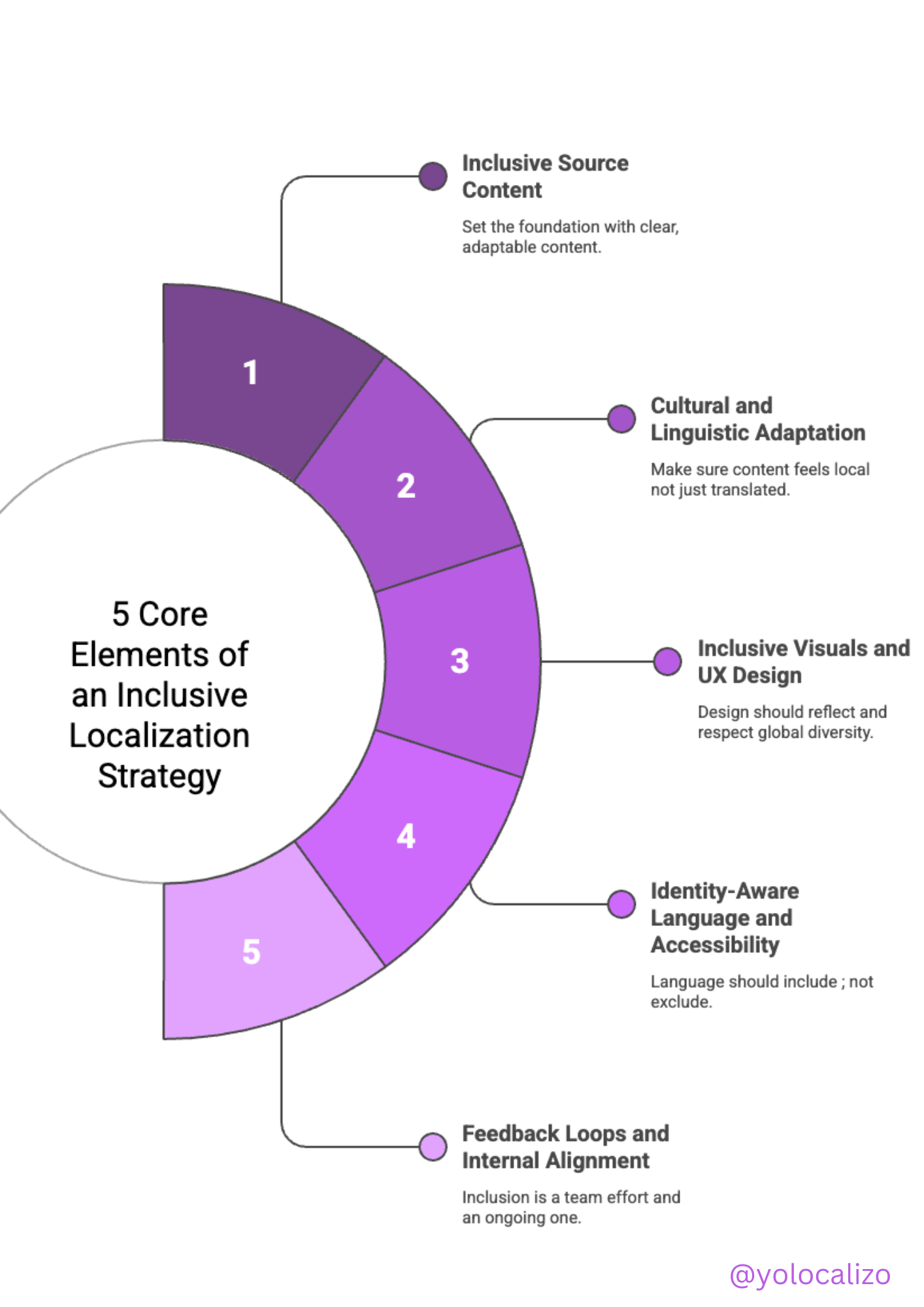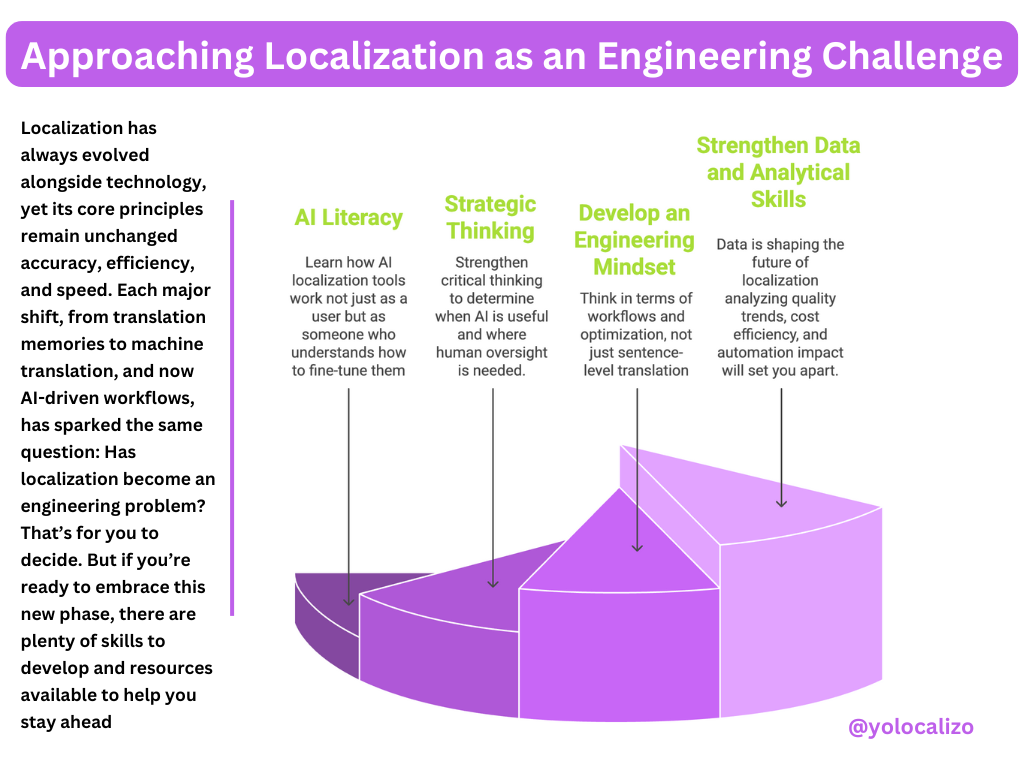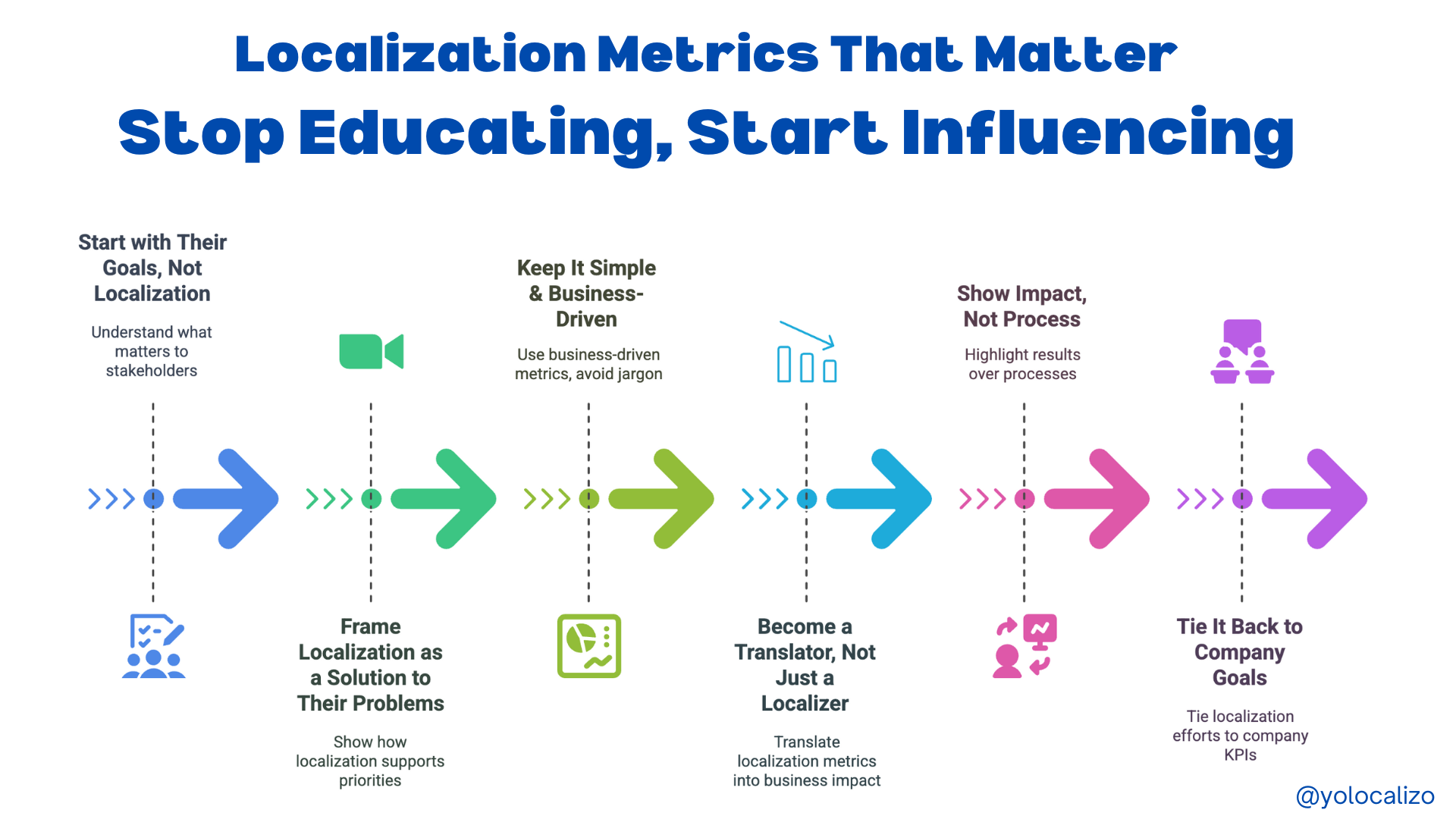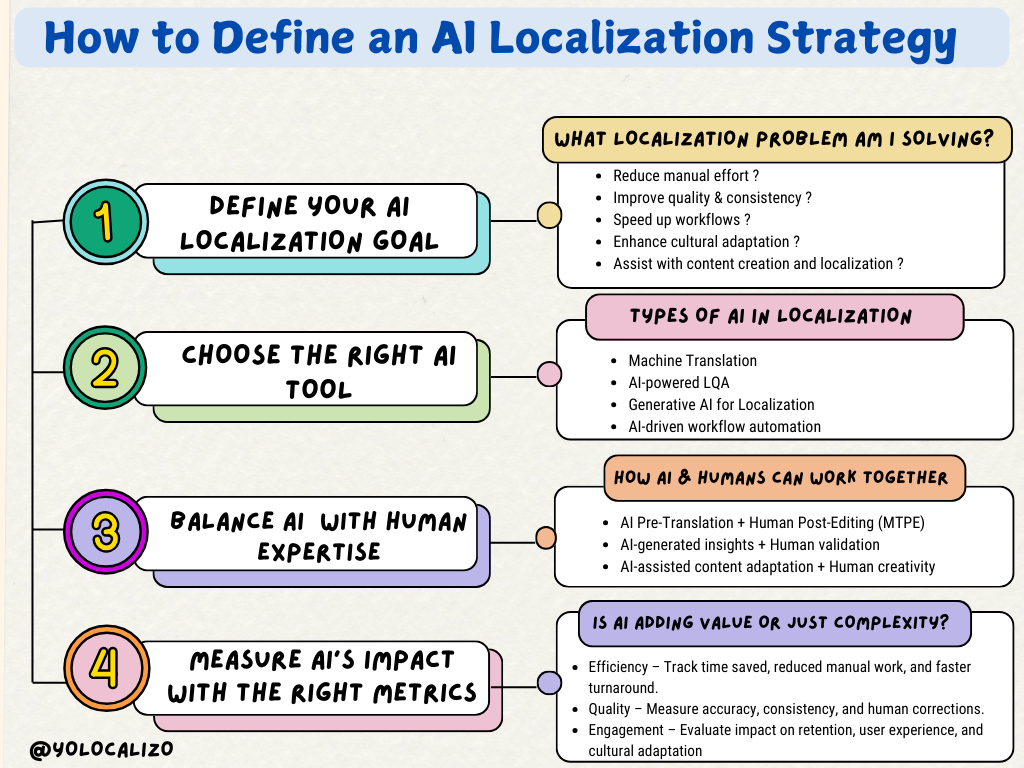Localizability has always been a challenge small issues in source content often lead to big problems later in translation. In this post, I explore how AI is giving localization teams a powerful new way to improve source quality, reduce friction, and create better content for every market right from the start.
What if inclusive localization isn’t just the right thing to do but also the smartest way to break free from outdated pricing models? In this post, I explore the core elements of an inclusive localization strategy and why it might be the key to escaping the trap of price-per-word thinking.
We all talk about the importance of localization metrics, but where do you actually get them?
This question hit me hard during a recent panel, and it made me realize something I had been overlooking.
If you’ve ever struggled to find the right data to prove localization’s value, this post is for you.
Localization has always evolved alongside technology, yet its core principles remain unchanged accuracy, efficiency, and speed. Each major shift, from translation memories to machine translation, and now AI-driven workflows, has sparked the same question: Has localization become an engineering problem? That’s for you to decide. But if you’re ready to embrace this new phase, there are plenty of skills to develop and resources available to help you stay ahead
Certain words in business settings push all my buttons: 'synergies,' 'strategic meetings,' and 'thought leadership.'
The worst offender? Synergy. Lately, though, another term has been creeping up my list: 'educated.' In localization, we often say, 'We need to educate stakeholders.' But do they really want to be educated? No, they want to understand how localization impacts them.
Instead of teaching, we need to translate localization into business value.
Be Careful What You Wish For.
Getting buy-in for localization feels like a big win, until the requests start piling up and it’s impossible to keep up. More teams want your help, more content needs translation, and suddenly, you’re overwhelmed. In this post, I share my experience and the signs that show it’s time to grow your localization team
With tools like LLMs and GPT, we’re at a turning point, and staying curious, planning carefully, and aligning efforts are key. Missing any crucial element could hinder progress. A "slow and steady" approach is essential to navigate the AI wave.
AI is everywhere, and localization teams feel the pressure to "do something with AI." However, without a clear strategy, AI adoption can become an expensive distraction rather than a real value driver. In this post, I explain how to define an AI localization strategy that enhances efficiency, improves quality, and delivers real business impact without just following the hype.
Localization professionals often focus on translation quality and best practices, but decision-makers care about customer impact and revenue. If we frame localization as a cost, it risks being deprioritized. Instead, we must highlight its value driving engagement, trust, and business growth.
Usually, when we want to improve something in our Localization strategy, we first set an ambitious goal. From there, we design a strategy to reach it as quickly as possible. If we don't see rapid changes, we feel like we're not improving. To break this cycle, we can try changing the way we set goals—smaller, but consistent objectives that, when we look back, show us that we are indeed making progress. This progress can be the driving force for us every week, every month, every year.
Here are some ideas on how we could apply this Kaizen methodology in the Localization world.





















Localizability has always been a challenge small issues in source content often lead to big problems later in translation. In this post, I explore how AI is giving localization teams a powerful new way to improve source quality, reduce friction, and create better content for every market right from the start.